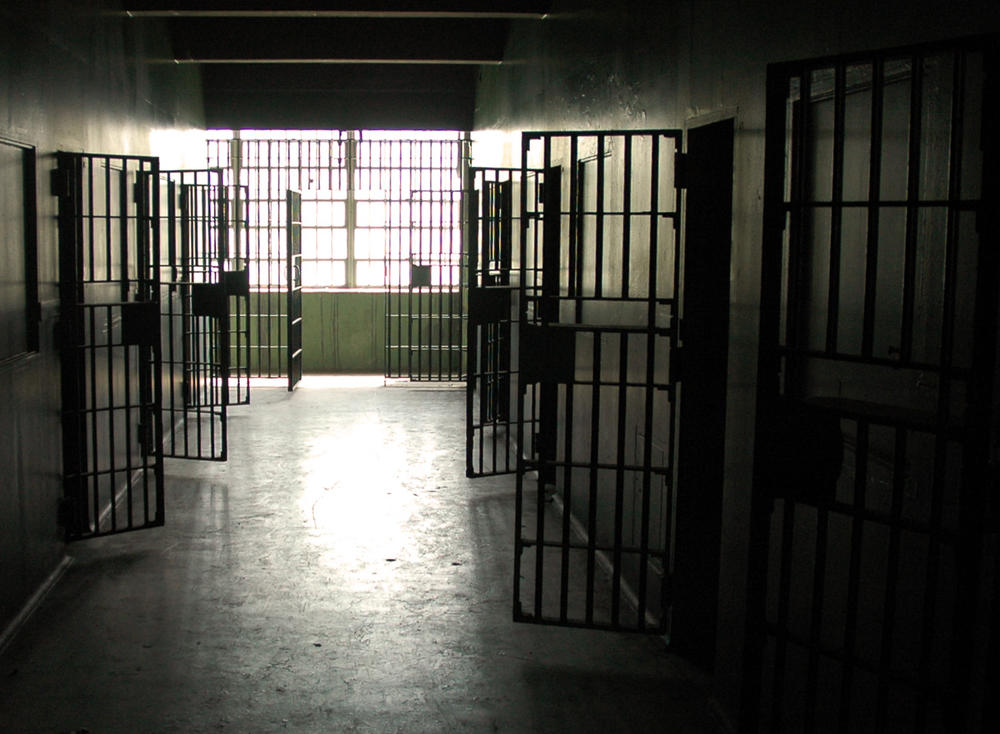Section Branding
Header Content
Georgia Agrees To Improve Solitary Confinement Conditions
Primary Content
Corrections officials have agreed to improve conditions for prisoners in Georgia's most restrictive solitary confinement facility, which an expert had said risked causing prisoners psychological harm.
The proposed changes would settle a lawsuit filed by prisoners in the Special Management Unit of the Georgia Diagnostic and Classification Prison in Jackson. Their agreement, reached last month with Corrections Department officials and now awaiting a judge's approval, says prisoners will be allowed out of their cells at least four hours each weekday, won't be housed in the unit longer than two years except in certain narrowly defined circumstances, and will have access to educational programming and materials, among other changes.
Psychology professor and prison expert Craig Haney wrote in a report submitted to the court last year by the prisoners' lawyers that he had toured maximum-security prisons in roughly two dozen states, and this unit was "one of the harshest and most draconian" he had seen.
His report included photos images of prisoners with self-inflicted cuts, blood on the floor of one cell and the window of another, and descriptions of "extraordinarily harsh" living conditions. His conclusion: "The prisoners at this facility face a substantial risk of serious harm, harm that may be long-lasting and even fatal."
His report "was a watershed moment," Southern Center for Human Rights attorney Sarah Geraghty, who represents the prisoners, said in a news release.
"A civilized society doesn't lock people in isolation cells for years on end," she said. "It was past time to move out of the dark ages."
A Department of Corrections statement says the agency "recognizes the national reforms surrounding restrictive housing and we are actively engaged in moving forward with internal procedures that address these trends."
The 192 cells in the unit measure about 6 feet by 9 feet. The solid metal doors have a small glass window with a sliding cover. Guards pass meals through a slot. A small exterior window at the back of each cell is covered by a shield.
The SMU is divided into six wings that correspond to a three-tier program. While prisoners were supposed to be able to move through the six wings in about 18 months and then be transferred out, many languished in the SMU for years, their lawyers said.
In the most restrictive wings, prisoners remained locked in their cells 24 hours a day, five to seven days a week and weren't allowed to have books or other distractions, the motion said.
The proposed agreement would allow the unit's prisoners one hour of out-of-cell time in outdoor recreation cages and three hours in a common area each day, except on weekends or holidays. It says the denial of out-of-cell time won't be used as a punishment except for a short time for serious misconduct.
Prisoners also will be allowed access to prison library materials and mobile book carts and will be given computer tablets with educational programs, email capability, music and other media. Within six months, they will have the chance to participate in at least two hours of out-of-cell computer time or classes, including a GED program.
In cases that meet narrowly defined circumstances that result in prisoners being held in the unit longer than two years, a panel of senior security, legal and mental health professionals will conduct a quarterly review.
Before they're assigned to the unit, prisoners will have a mental health evaluation and won't be placed in the unit if mental illness or disability prevents them from being able to comply with the unit's rules or to complete the three-tiered program.
Inmate Timothy Gumm, who initially filed the lawsuit on his own in 2015, has been in prison since 1995 serving a life sentence for rape. He was held in the unit for more than seven years. The Southern Center took up his case in 2016 and expanded it into a class action, and brought in lawyers from law firm Kilpatrick Townsend and Stockton.
"As the result of this case, the Department of Corrections has agreed to meaningful reforms that will provide SMU prisoners with essential human interaction and tangible guideposts for getting out of the SMU," firm partner Allen Garrett said in the news release.

